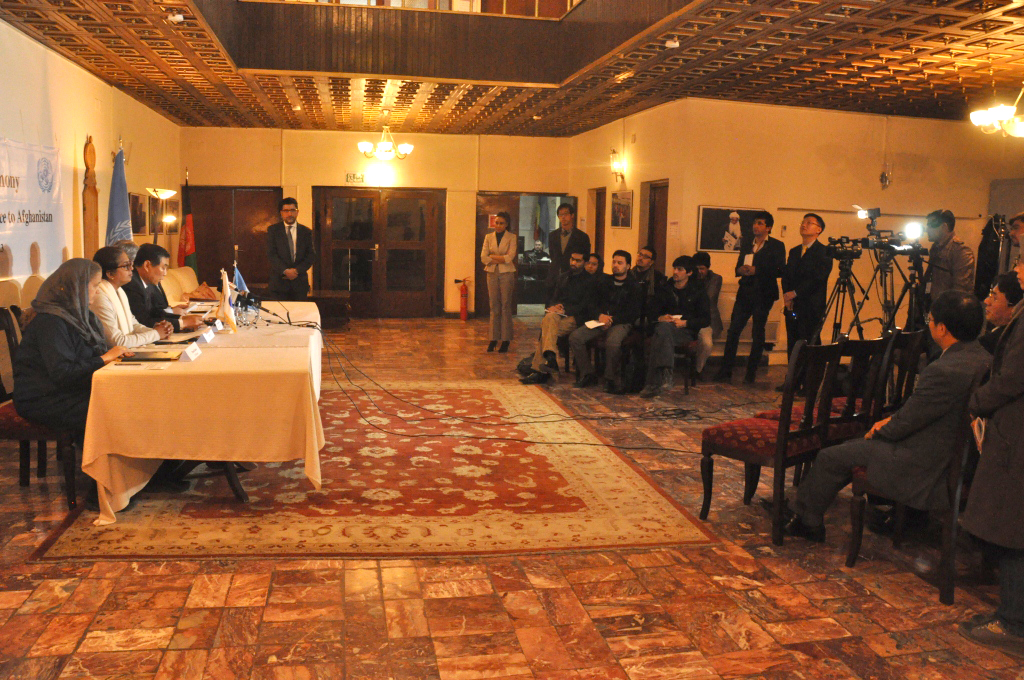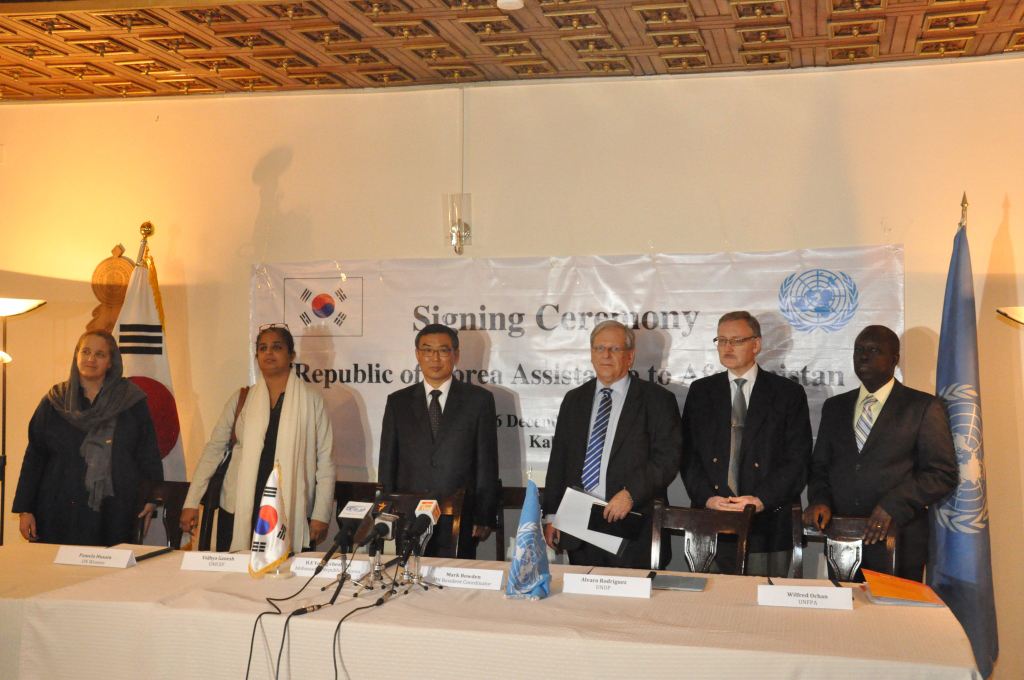KABUL - The Republic of Korea has pledged more than $43 million for a number of United Nations agencies, funds and programmes involved in projects to improve women’s rights and the delivery of basic services in Afghanistan.The Ambassador of Korea to Afghanistan, Young-cheol Cha, and the Secretary-General’s Deputy Special Representative for the country, Mark Bowden, as well as representatives from the UN bodies, signed the assistance agreement today in the capital, Kabul.
“We are grateful for Korea’s assistance that comes at a critical time as Afghanistan is undergoing currently three simultaneous transitions: socio-economic, military and political,” said Mr. Bowden, who also serves as the world body’s Resident and Humanitarian Coordinator in Afghanistan.
“2014 is the year of transitions as Afghanistan prepares to enter the Transformation Decade for greater Afghan ownership and leadership and addressing these priorities will be instrumental in helping Afghanistan advance towards one of its key objective as enshrined in the TMAF: inclusive and sustained growth and development,” he added, referring to the Tokyo Mutual Accountability Framework (TMAF).
An outcome of a conference in the Japanese capital last year, the Tokyo gathering brought together representatives of 70 countries and international organizations to chart out future assistance for Afghanistan to meet its economic and development needs through the ongoing transitions and during the so-called Transformation Decade of 2015-2024.
Afghanistan is undergoing a critical period in its history. The country is scheduled to hold a presidential election on 5 April next year, marking an end to the second term of the incumbent, President Hamid Karzai. The political transition coincides with security and economic transitions – on the security front, Afghan security forces have assumed security responsibilities from their international allies, who are scheduled end their combat mission at the end of 2014.
The funds pledged today aim to support, over the next three years, national development priorities identified by the Government of Afghanistan, and is a part of the commitment by the Government of Korea for its involvement in the long-term development of the country.
“With the assistance that we have announced today, we signal our commitment of support to ensuring strong progress on gender equality, protection of women’s rights, and women’s empowerment in Afghanistan, including building greater focus on increased improvement maternal health, development of women’s entrepreneurship skills and elimination of violence against women,” Ambassador Cha said.
“At the same time,” he continued, “we will support initiatives for ensuring transparent and accountable governance in the provinces, which is critical to improvements in delivery of basic services for all Afghans and expanding progress on socio-economic and cultural development of Afghanistan.”
The UN agencies, funds and programmes receiving grants are the UN Development Programme (UNDP), the UN Children’s Fund (UNICEF), the UN Population Fund (UNFPA) and the UN Entity for Gender Equality and the Empowerment of Women (UN Women).
UNDP will receive $11 million for women’s empowerment; UNICEF will receive $16.8 million for the improvement of maternal and neo-natal child health in under-served areas of Afghanistan; UNDPA will receive $4.2 million to address issues related to gender-based violence; and UN Women will receive $3.43 million to support work addressing aspects of the elimination of violence against women.
In his remarks, Mr. Bowden noted that the international community has previously recognized the necessity that any reductions in donor support take place in a phased and responsible manner so that development gains can be consolidated as opposed to lost.
“The lessons of the past are clear; precipitous drops in assistance promote instability,” the UN official said. “Korea’s assistance therefore remains important to us and we will ensure that it is used with ever increasing effectiveness to realize our shared goal of a secure, self-sufficient Afghanistan.”








